Merchant service providers give businesses the tools to accept today’s mix of payments—chip and tap cards, digital wallets, ACH, and online checkouts—while keeping costs, security, and cash flow under control.
Whether you’re taking cards for the first time or you’re an established operation looking to reduce fees and improve reliability, this guide will help you choose a service that matches your volume, sales channels, and support needs.
The Top 9 Best Merchant Services in 2026
- Stax – Best for transparent, predictable pricing
- Payment Depot – Best for high-volume processing
- Helcim – Best merchant services for small businesses
- Square – Best for flat-rate payment processing
- Flagship Merchant Services – Best for exceptional support
- PaymentCloud – Best for high-risk merchants
- Fiserv – Best merchant services for retailers
- Dharma Merchant Services – Best B2B merchant services
- Stripe – Best for online credit card processing
After researching dozens of providers, I narrowed the field to the best options for common business scenarios—brick-and-mortar, ecommerce, B2B, high-volume, and high-risk.
The reviews below explain key features, pricing approaches, and trade-offs. A short buying guide at the end shows how to apply the same criteria to choose the right partner for your business.
Stax — Best for Transparent, Predictable Pricing
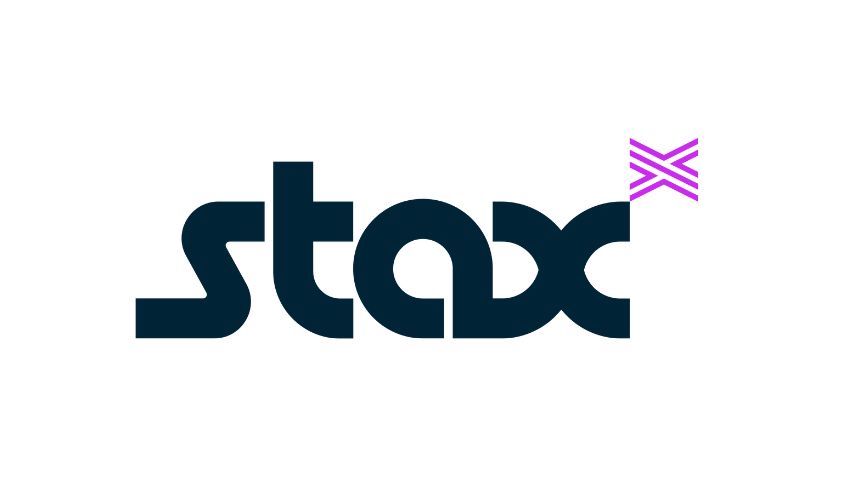
Stax uses a subscription model with direct-cost interchange (0% markup). For businesses doing meaningful monthly volume, this structure can cut total processing costs compared to traditional flat-rate pricing.
If you’re very low volume, a pure pay-as-you-go option may be cheaper. But for mid-sized and growing businesses, professional services, membership organizations, and ecommerce, Stax’s model is compelling.
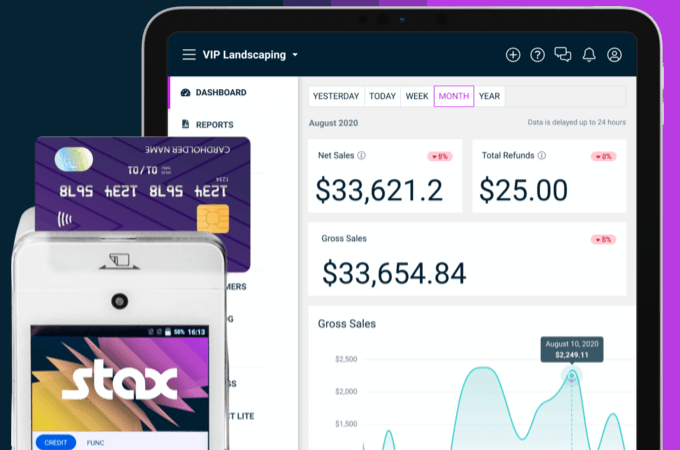
Pricing transparency is a core selling point: month-to-month terms, flat subscription fees, no early-termination penalties, and access to wholesale interchange.
Subscription tiers align with your annual processing volume:
- Starts at $99 per month for lower-volume businesses (exact plan depends on your annual processing and feature needs)
- Mid-market tiers scale as volume grows into the hundreds of thousands to low millions annually
- Over $5 million per year — customized enterprise pricing
Plans support a free terminal or mobile reader offer, ACH payments, analytics, digital invoicing, stored-card auto-updates, and more.
Larger organizations can upgrade to Stax Enterprise for a payments API, virtual terminal, advanced reporting, and automatic qualification for Level 2 data on eligible card-not-present transactions to reduce interchange where applicable.
Support is available 24/7, and the online knowledge base is robust. Learn more about Stax.
Payment Depot — Best For High-Volume Processing
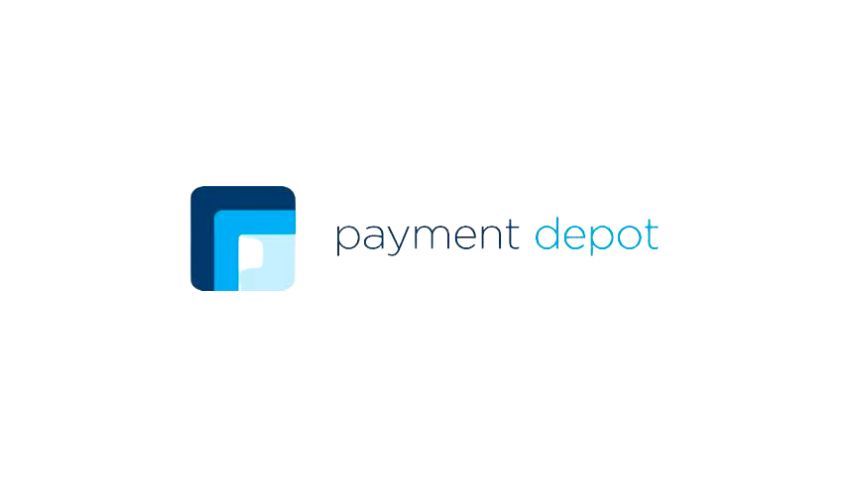
Payment Depot is well known for helping higher-volume merchants lower effective rates through interchange-plus and membership-style pricing.
Many businesses switching to Payment Depot report meaningful savings, particularly once monthly volume climbs.
Payment Depot emphasizes straightforward pricing and month-to-month terms without hidden fees or punitive cancellations.
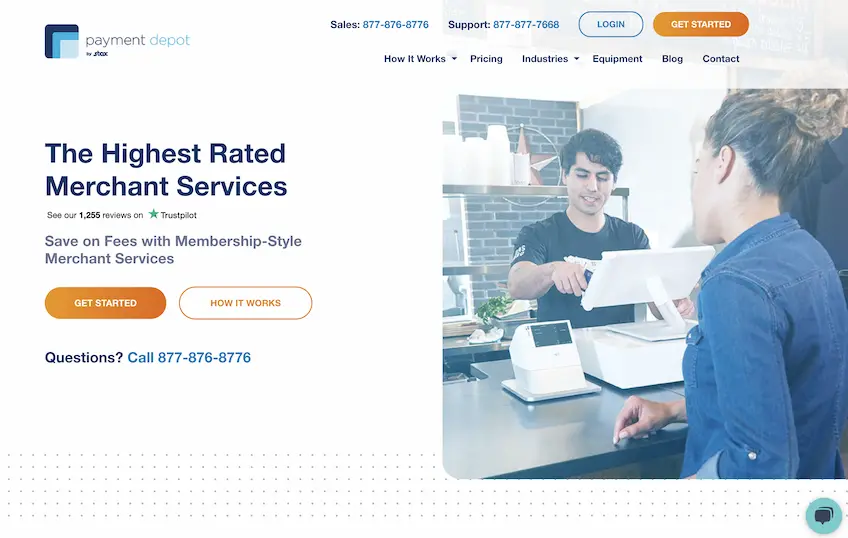
You’ll get access to:
- All-in-one software with unlimited access
- Responsive live customer service
- Low per-transaction fees with interchange-plus models
- Virtual terminals
- POS systems
- Mobile processing
Payment Depot integrates with tools you may already use—including QuickBooks, Authorize.net, Shopify, BigCommerce, and more.
Current pricing is quote-based and depends on your industry, risk profile, and volume. If you’re processing at scale, request a tailored proposal to benchmark potential savings.
As your volume grows, Payment Depot typically becomes more competitive than flat-rate processors.
Get started now with Payment Depot.
Helcim — Best Merchant Services For Small Businesses
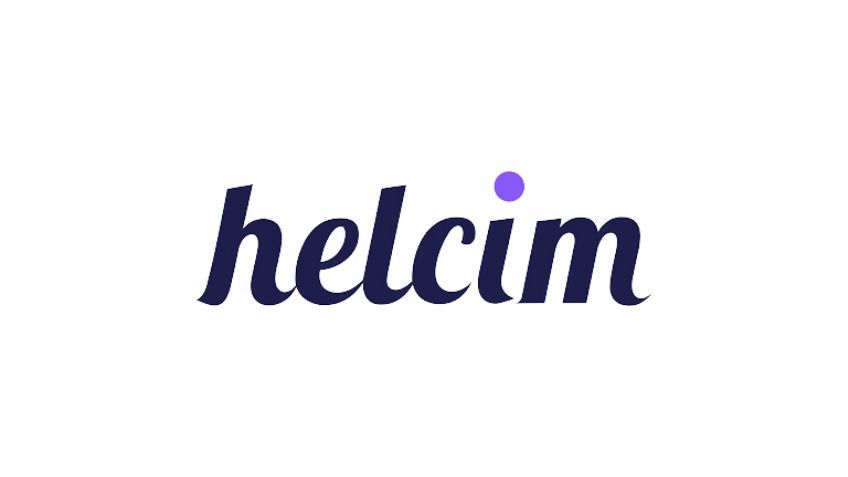
Helcim’s merchant services are built for small businesses that want transparent interchange-plus pricing with automatic volume discounts and no monthly fee.
Use Helcim to accept cards in person and online, set up recurring billing, send branded invoices, or take payments by phone via a virtual terminal.
Helcim’s readers support swipe, dip, tap, and chip. You can accept Visa, Mastercard, Discover, Amex, Apple Pay, Google Pay, JCB, and more.
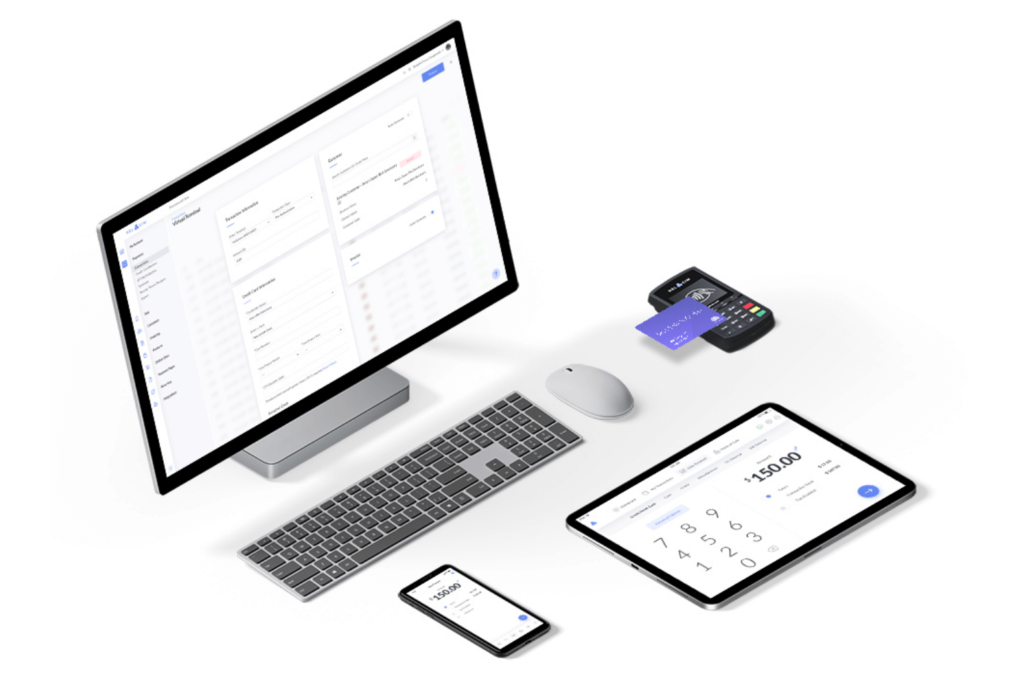
Expect fast funding (often next business day, depending on bank cutoffs), secure card vaulting, and slick web-, phone-, and tablet-based processing. You can also sync Helcim with QuickBooks Online to streamline reconciliation.
Helcim’s interchange-plus margins drop as you process more each month, helping diligent small businesses keep costs tight—without PCI fees or long-term contracts. Learn more and sign up at Helcim.
Square — Best For Flat-Rate Payment Processing
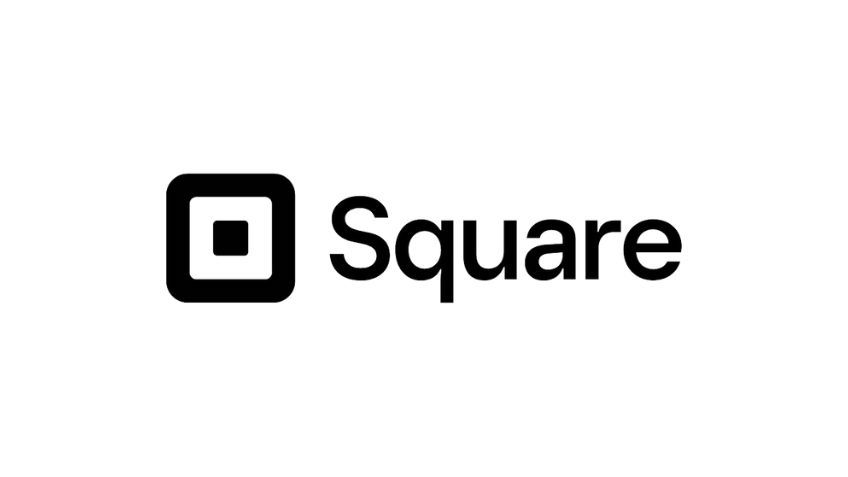
Square remains a go-to for millions of small businesses thanks to easy setup, built-in POS, and a flat-rate model that simplifies forecasting.
Beyond the register, Square supports online ordering, invoicing, subscriptions, appointments, contactless and remote payments, curbside pickup, loyalty programs, and basic marketing tools.
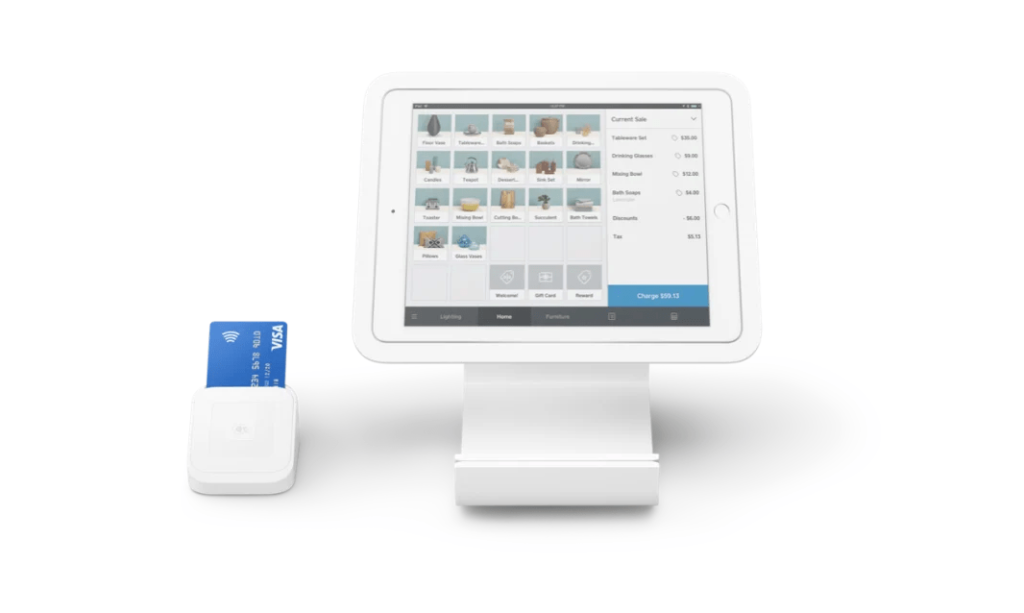
Highlights include:
- No long-term contracts
- No early termination fees
- Built-in PCI compliance and dispute management
- No setup or chargeback fees
- Real-time analytics
- Free magstripe reader (first reader)
- Fraud prevention tools
Typical rates: in-person payments at 2.6% + $0.15 per transaction; online checkout at 2.9% + $0.30; invoices at 3.3% + $0.30; and card-on-file or keyed/virtual terminal at 3.5% + $0.15. Your exact cost depends on how the card is accepted.
Restaurants, retailers, and appointment-based teams often benefit from Square Plus plans (from $29 per month) tailored to those industries.
Flat-rate simplicity is Square’s strength, but very high-volume merchants can usually do better with interchange-plus or subscription pricing.
Flagship Merchant Services — Best for Exceptional Support
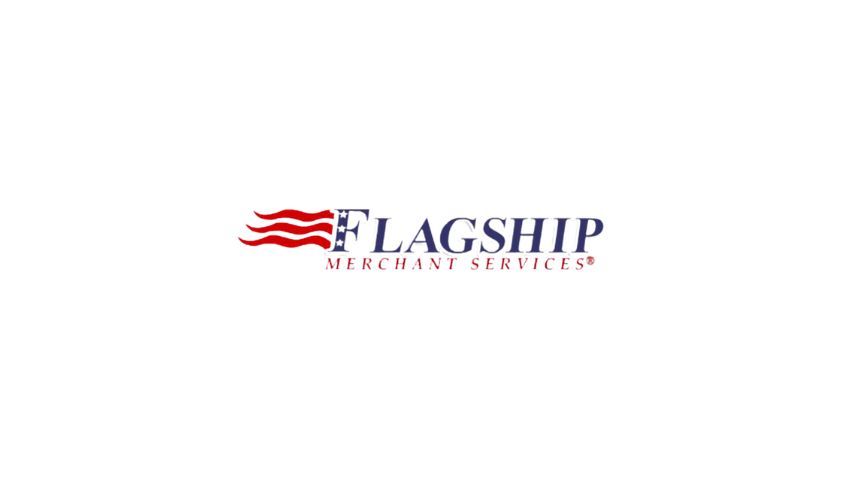
Flagship Merchant Services has supported merchants since 2001 and stands out for hands-on onboarding and responsive account management.
More than 25,000 businesses use Flagship. If you want help before, during, and after setup, it’s a strong pick.
New accounts can receive a free POS system or EMV terminal.
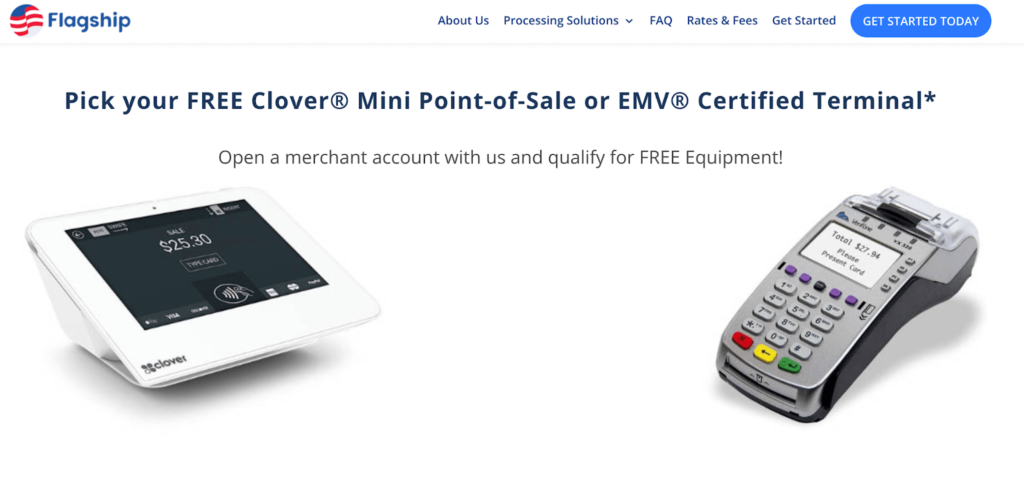
Other highlights:
- Same-day funding options (fees may apply)
- Accept all major credit and debit cards
- Apple Pay, Google Pay, and Samsung Pay compatible
- Mobile, in-store, online, and MOTO solutions
Whether you run a retail shop, restaurant, or ecommerce brand, Flagship is a flexible option.
They also promise to meet or beat competing rates. If they can’t, you’ll receive a $200 American Express gift card.
Beyond processing, Flagship can help with cash advances, loyalty and gift cards, and business management tools.
Request a free quote to get started.
PaymentCloud — Best For High-Risk Merchants
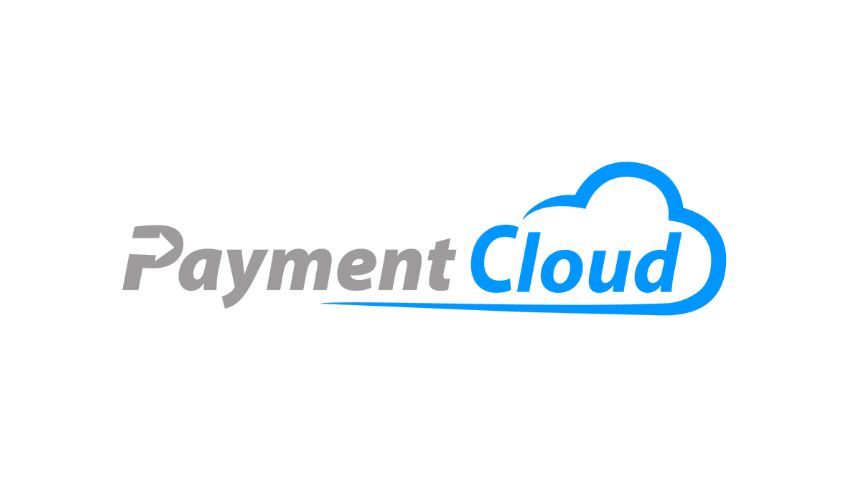
Some industries are tough to place due to elevated chargeback and fraud risk. Many processors won’t underwrite these merchants at all.
If other providers have declined your application, PaymentCloud is built for high-risk placements—online, in person, or on the go.

PaymentCloud integrates with major ecommerce platforms like Shopify, Magento, BigCommerce, WooCommerce, and more—without application or setup fees.
Examples of high-risk categories they can support include:
- Firearms
- Software and SaaS
- Adult businesses
- Tobacco
- Electronic cigarettes and vaping
- Diet programs
- Bail bonds
- Debt consolidation
- Dating services
Apply online, choose a terminal or gateway, and start accepting payments after approval.
While PaymentCloud can work with standard-risk businesses, I primarily recommend it for high-risk processing. Low- and medium-risk merchants will usually find better pricing elsewhere.
Fiserv— Best Merchant Services For Retailers

Fiserv (formerly First Data) is one of the world’s largest merchant acquirers, serving banks, enterprises, and small businesses with processing and POS solutions.
Offerings scale from single-location retail to large, multi-site operations. Fiserv’s Clover POS ecosystem in particular gives retailers modern hardware, strong inventory and staffing tools, and an app marketplace.

Solutions cover retail, services, ecommerce, and food service. You can configure countertop stations or flexible readers and add loyalty, gift cards, and analytics.
To get started, connect with a Fiserv consultant to tailor a setup for your locations and workflows.
Dharma Merchant Services — Best B2B Merchant Services
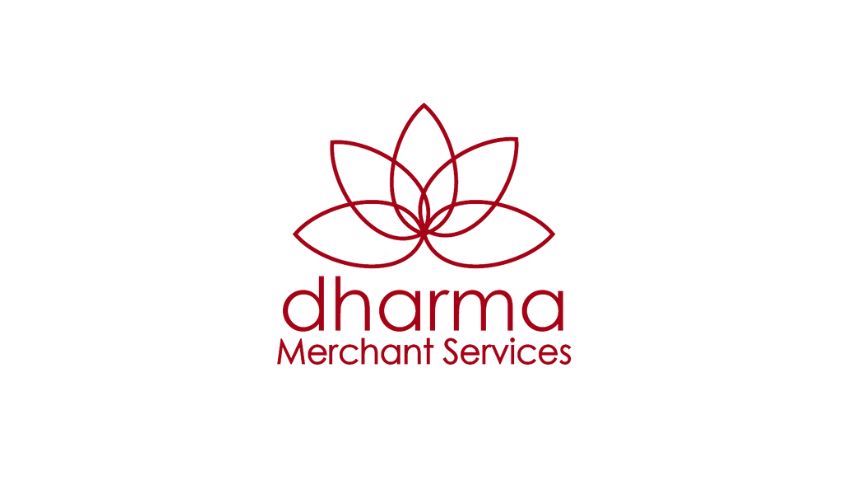
Dharma Merchant Services focuses on interchange-plus pricing with tools and guidance tailored to B2B merchants.
B2B accounts can accept Level 2 and Level 3 data on business cards to unlock lower interchange on eligible transactions. High-volume B2B merchants may qualify for additional discounts.

All Dharma merchant accounts include:
- Online reporting
- Next-day funding for card-present transactions
- Customer databases and secure card storage
- Mobile processing (Apple and Android)
- Virtual terminal
- Online payment links
With no long-term contracts or hidden fees, Dharma’s value comes from clear interchange-plus pricing and responsive technical support.
Stripe — Best For Online Credit Card Processing
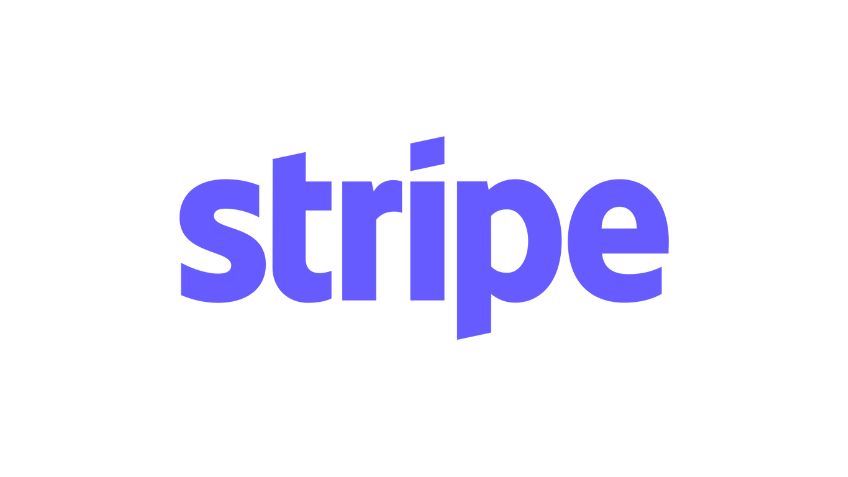
If you sell primarily online, Stripe is a top choice. It’s built for web and mobile checkouts, subscriptions, SaaS, marketplaces, and global expansion.
Millions of businesses—from startups to enterprises—use Stripe’s APIs and hosted checkout to accept cards, wallets, and local payment methods in numerous currencies.

Stripe also offers invoicing, fraud prevention, card issuing, financing, and spend management—so your payments stack can scale with you.
The developer-friendly APIs are highly flexible and support sophisticated billing, retries, and stored-credential logic for better conversion and lifetime value.
International checkout is a strong suit—Stripe localizes payment pages for language and currency, and customers can choose from a wide range of payment methods.
Standard online card pricing starts at 2.9% + $0.30 per successful charge, with additional fees for international cards and currency conversion. ACH Direct Debit is typically 0.8% per transaction with a $5 cap.
Stripe also supports in-person payments with terminals, but I primarily recommend it if online is your core channel.
How to Find the Best Merchant Services For You
The best provider for your business depends on what you sell, where you accept payments, your average ticket size, and how much you process. Use the factors below to compare options side by side.
This is the methodology I used to pick the winners above, and it works for any business evaluating providers.
Services Needed
Not every processor offers the same stack. Beyond core credit and debit processing, look for POS systems and hardware, virtual terminals, invoicing and recurring billing, ecommerce plugins, mobile readers, and ACH.
Some providers add business financing, fraud tools, customer loyalty, gift cards, and chargeback management. If you plan to surcharge credit transactions (where allowed), make sure the provider offers compliant surcharging tools and guidance.
Write down your “must-haves” and confirm each candidate can meet them without pricey add-ons.
Processing Rates
Fees add up quickly. Flat-rate pricing is simple and great for lower volume. Interchange-plus usually yields lower effective rates as you scale. Subscription models (a flat monthly fee + direct-cost interchange) can be cheapest for steady, higher volume.
Some providers charge a monthly fee to unlock best-available pricing. If you’re B2B, ask about Level 2/3 support on business and purchasing cards to lower interchange on eligible transactions.
Compare the full picture: processing fees, hardware and software costs, PCI and statement fees (ideally $0), and any gateway or chargeback fees.
Processing Volume
Rates are often volume-based. Higher volume usually unlocks better margins. Ask for quotes at your current volume and the next tier up—then project savings as you grow.
Funding and Support
Cash flow matters. Look for next-day or same-day funding options and confirm cutoff times for batching. Ask how disputes are handled and how quickly you can reach a live agent.
Ideally, you’ll get free PCI compliance tools, clear statements, and no setup or cancellation fees.
Merchant Category Code (MCC)
Payment brands, issuers, and processors use MCCs to classify your business. Some MCCs are considered higher risk due to chargebacks or fraud patterns.
If you’re in a high-risk category, you’ll need a provider that specializes in underwriting and supporting those accounts.
Examples of high-risk categories include:
- Gambling
- Pharmaceuticals
- Telemarketing
- Tobacco and e-cigarettes
- CBD and marijuana
- Firearms and weapons
- Credit repair services
- Pawn shops
- Magazine subscriptions
If you fall into a high-risk category, not every provider will approve your account. Focus on specialists with the gateways, fraud tools, and chargeback workflows your MCC requires.
The Top Merchant Services in 2026
Merchant services come in several flavors—independent sales organizations (ISOs), banks, and fully integrated platforms that bundle hardware, software, and processing.
Stax, Helcim, Payment Depot, and Square are my top recommendations, with other strong choices above depending on your volume, risk profile, and sales channels.
